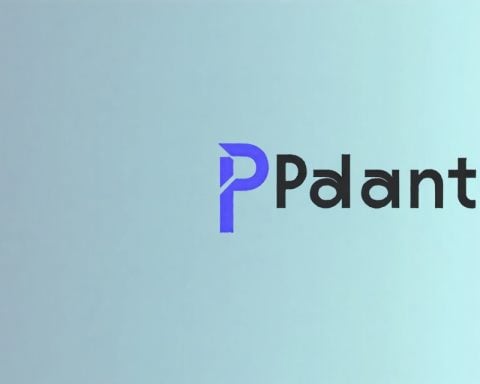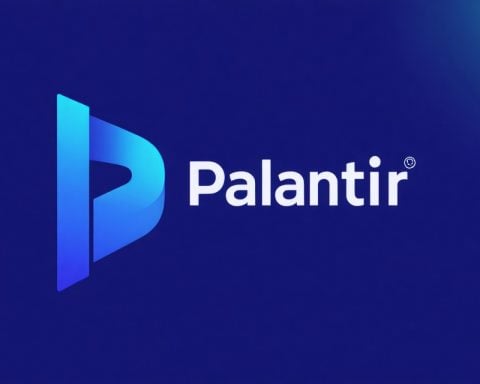- Quantum RootCA, launching in early 2025, is a pioneering security solution addressing quantum computing threats with advanced Post-Quantum Cryptography (PQC) algorithms.
- Algorithms like CRYSTALS-Dilithium and FALCON form a strong defense against future quantum computer capabilities, safeguarding critical data.
- The ‘Quantum Lab’ by SEALSQ provides a practical space for businesses to apply post-quantum security, benefiting industries such as IoT, healthcare, telecommunications, and finance.
- Integration with Hardware Security Modules (HSMs) and Trusted Platform Modules (TPMs) secures encryption keys, ensuring digital communication confidentiality and integrity.
- Quantum RootCA represents a monumental step in creating quantum-safe encryption standards essential for building trust across various sectors.
- This innovation prepares industries for a digital future with enhanced protection against quantum threats, promoting resilience and confidence.
In a groundbreaking move towards a safer digital future, SEALSQ and the OISTE.ORG Foundation are preparing to launch Quantum RootCA in early 2025. This cutting-edge development aims to tackle the looming threats of quantum computing head-on, setting a new standard in cybersecurity.
Quantum RootCA is an unparalleled defense system powered by advanced Post-Quantum Cryptography (PQC) algorithms like CRYSTALS-Dilithium and FALCON. These sophisticated algorithms form a stalwart barrier against the massive processing powers of future quantum computers, ensuring that critical data remains impervious.
Businesses have much to gain with SEALSQ’s introduction of the ‘Quantum Lab.’ This innovative facility provides a practical environment for companies to transition from theoretical understandings to actionable, post-quantum security practices. Industries including IoT, healthcare, telecommunications, and finance will find significant advantage in these robust protections, shielding themselves from potential data breaches that could wreak havoc in a digital-first world.
Moreover, the integration of Hardware Security Modules (HSMs) and Trusted Platform Modules (TPMs) with Quantum RootCA is crucial. These modules safeguard encryption keys within tamper-resistant hardware, upholding the confidentiality and integrity of digital communications. This monumental leap forwards establishes a solid, quantum-safe encryption standard pivotal in maintaining trust across various sectors.
As we embrace this new era, Quantum RootCA stands as a critical innovation in fortifying digital defenses against impending quantum threats. This revolutionary push is not just about prevention—it’s about empowering businesses to confidently stride into the future, fortified by unprecedented digital resilience.
Unveiling the Future of Cybersecurity: How Quantum RootCA is Revolutionizing Digital Defense
What is Quantum RootCA and Why Does it Matter?
Quantum RootCA is a pioneering cybersecurity initiative aimed at preemptively neutralizing the threats posed by future quantum computers. As quantum computing continues to evolve, its ability to crack conventional encryption threatens to dismantle current data security frameworks. Quantum RootCA employs Post-Quantum Cryptography (PQC) algorithms such as CRYSTALS-Dilithium and FALCON to create a robust defense system that ensures sensitive data remains unbreachable.
What are the Key Features and Innovations of Quantum RootCA?
Quantum RootCA introduces several groundbreaking features, integrating with advanced Hardware Security Modules (HSMs) and Trusted Platform Modules (TPMs):
– Post-Quantum Cryptography (PQC) Algorithms: The use of CRYSTALS-Dilithium and FALCON algorithms provides a quantum-resistant shield to protect against decryption by quantum computers.
– Hardware Security Modules: These secure cryptographic keys within tamper-resistant hardware, essential for maintaining the integrity of digital communications.
– Quantum Lab: This innovative facility is designed to bridge the gap between theoretical PQC concepts and practical, actionable security solutions for businesses in multiple sectors.
How Can Businesses Benefit from Implementing Quantum RootCA?
Businesses, especially in fields like IoT, healthcare, telecommunications, and finance, stand to gain significant advantages from implementing Quantum RootCA. Key benefits include:
– Enhanced Data Security: With a quantum-safe encryption standard, companies can protect sensitive information from potential breaches by future quantum computing capabilities.
– Risk Mitigation: By staying ahead of the quantum threat curve, businesses can minimize the risks associated with quantum decryption.
– Operational Confidence: The integration of Quantum RootCA allows organizations to operate confidently, knowing their data and communications are fortified against emerging digital threats.
For more information on how Quantum RootCA and SEALSQ are spearheading advancements in cybersecurity, visit the official SEALSQ and OISTE.ORG Foundation websites.
Controversies and Challenges in Implementing Post-Quantum Cryptography
As with any groundbreaking technology, Quantum RootCA and its underlying PQC algorithms face several challenges and controversies:
– Complexity and Cost: The transition to post-quantum solutions may involve significant technical complexity and financial investment, particularly for small and medium-sized enterprises.
– Compatibility Issues: Existing systems and infrastructure may require updates or complete overhauls to integrate seamlessly with post-quantum technologies.
– Regulatory Hurdles: The lack of universal standards and regulations can pose significant challenges in broader adoption across different jurisdictions and industries.
With Quantum RootCA on the horizon, businesses must prepare to adopt these vital cybersecurity measures to safeguard against a quantum future that promises both unprecedented opportunities and challenges.












